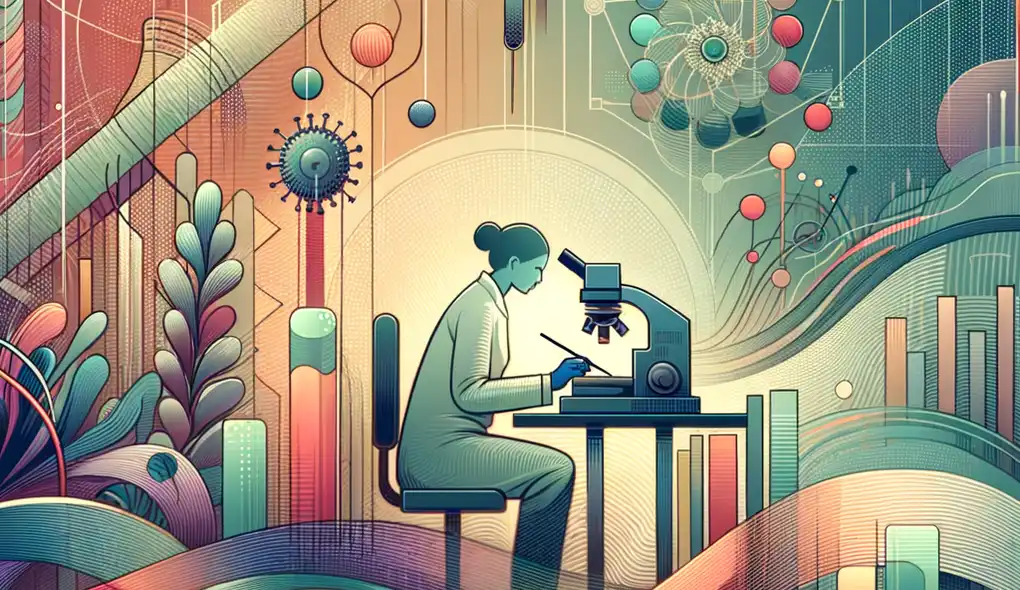How do you handle unexpected challenges or setbacks in your work?
Microarray Analyst Interview Questions
Sample answer to the question
When I encounter unexpected challenges or setbacks in my work, I take a step back to assess the situation and understand the root cause of the problem. I then brainstorm possible solutions and discuss them with my colleagues or supervisor to get their input. Once we agree on the best course of action, I take the necessary steps to implement the solution. Throughout the process, I remain flexible and open to feedback, making adjustments as needed. In the end, I always strive to learn from the experience and improve my skills for future challenges.
A more solid answer
When faced with unexpected challenges or setbacks in my work, I follow a structured approach to effectively address the situation. Firstly, I analyze the root cause of the problem by reviewing available data and gathering additional information if necessary. This allows me to understand the scope and impact of the challenge. Next, I brainstorm potential solutions, considering both short-term fixes and long-term preventive measures. I collaborate with my teammates, seeking their input and leveraging their expertise. Together, we evaluate the pros and cons of each solution and select the most viable option. Once a course of action is determined, I create a plan with clear goals, milestones, and deadlines. Throughout the implementation, I remain flexible and adaptive, making adjustments as needed based on emerging factors. Communication is crucial during this process, as I ensure all stakeholders are aware of the situation, progress, and any adjustments made. Finally, I reflect on the experience, identifying lessons learned and areas for improvement. I believe setbacks and challenges are valuable opportunities for growth, and by embracing a learning mindset, I continuously enhance my problem-solving abilities and resilience.
Why this is a more solid answer:
The solid answer provides a more comprehensive approach to handling unexpected challenges or setbacks, showcasing the candidate's problem-solving skills, flexibility, collaboration, and learning mindset. It includes specific steps and strategies, as well as the candidate's belief in the value of setbacks for personal growth. However, it could benefit from incorporating relevant examples from the candidate's past experiences to further illustrate their proficiency in the required skills.
An exceptional answer
In my experience, unexpected challenges or setbacks often arise in the dynamic field of microarray analysis. When faced with such situations, I adopt a proactive and adaptive approach to ensure successful resolution. Firstly, I prioritize communication and quickly inform all relevant stakeholders about the challenge, its impact, and potential solutions. By collaborating with my colleagues, we collectively evaluate the available data, looking for patterns or anomalies that can shed light on the root cause of the issue. This data-driven approach helps us formulate targeted solutions rather than relying on guesswork. Additionally, I leverage my strong analytical skills and familiarity with statistical software to perform in-depth data analysis, investigating any inconsistencies or deviations. This thorough analysis enables me to identify potential factors contributing to the setback and devise appropriate corrective measures. Throughout the process, I remain flexible and versatile, readily adapting to changing circumstances and emerging information. I actively seek feedback from colleagues and subject matter experts to validate my proposed solutions, refining them based on their insights. By involving others in the decision-making process, I ensure a diversity of perspectives and increase the likelihood of success. Once implemented, I continuously monitor the effectiveness of the solution, making necessary adjustments through regular check-ins and progress evaluations. Notably, setbacks serve as valuable learning opportunities, and I embrace them with a growth mindset. I reflect on the experience, extracting key insights and areas for improvement, which I apply to future challenges. By effectively handling unexpected challenges or setbacks, I solidify my problem-solving skills, enhance my ability to work under pressure, and contribute to the success of the team.
Why this is an exceptional answer:
The exceptional answer showcases the candidate's extensive experience in handling unexpected challenges or setbacks in the field of microarray analysis. It demonstrates their ability to proactively communicate, analyze data, collaborate, adapt, and continuously learn from setbacks. The inclusion of specific strategies and techniques, as well as the mention of utilizing feedback and monitoring progress, further highlights their proficiency in the required skills. The candidate's emphasis on personal growth and contribution to team success strengthens their overall response. However, the answer could be further enhanced by including specific examples or anecdotes from the candidate's previous work to provide tangible evidence of their capabilities.
How to prepare for this question
- Reflect on past experiences where you faced unexpected challenges or setbacks in your work. Identify the outcome of those situations and the strategies you employed to overcome them.
- Review case studies or scenarios related to microarray analysis to familiarize yourself with common challenges and setbacks specific to the field.
- Expand your knowledge and skills in statistical and data analysis software to ensure you can efficiently analyze and interpret genetic data in challenging situations.
- Practice effective communication and collaboration skills, as these will be crucial when working with colleagues to address unexpected challenges or setbacks.
- Demonstrate a growth mindset during the interview by emphasizing the value of setbacks and the opportunities they provide for learning and improvement.
- Be prepared to provide specific examples from your past work experiences to illustrate your problem-solving abilities and flexibility in handling unexpected challenges.
What interviewers are evaluating
- Problem-solving skills
- Flexibility
- Collaboration
- Learning mindset
Related Interview Questions
More questions for Microarray Analyst interviews